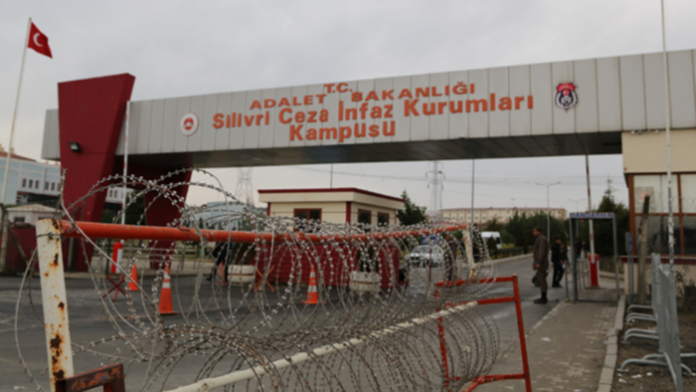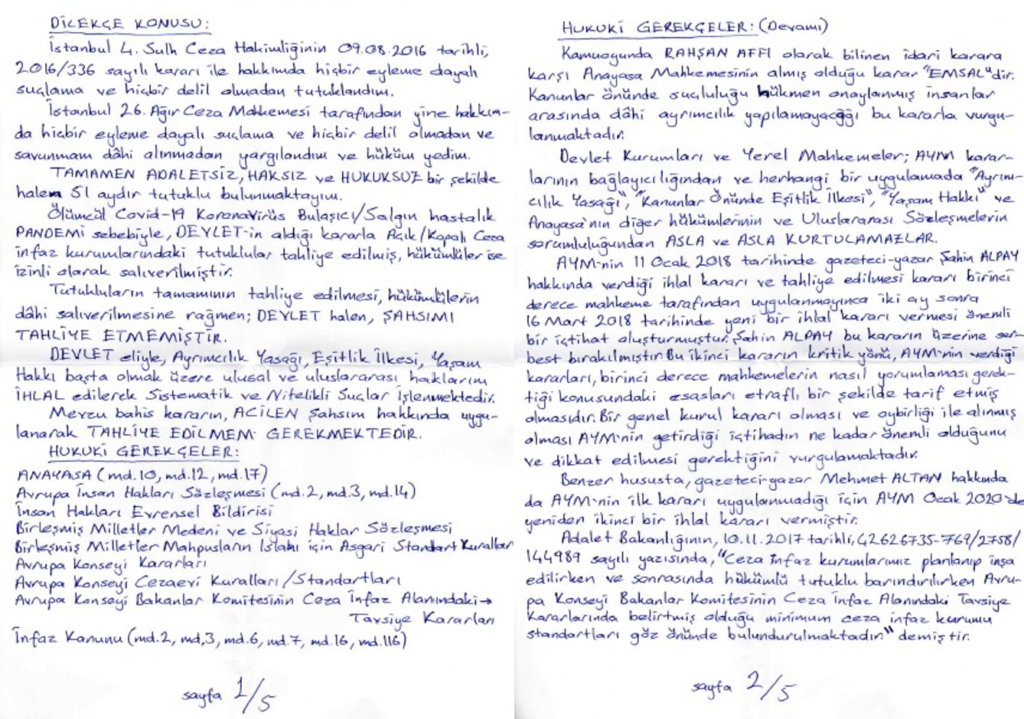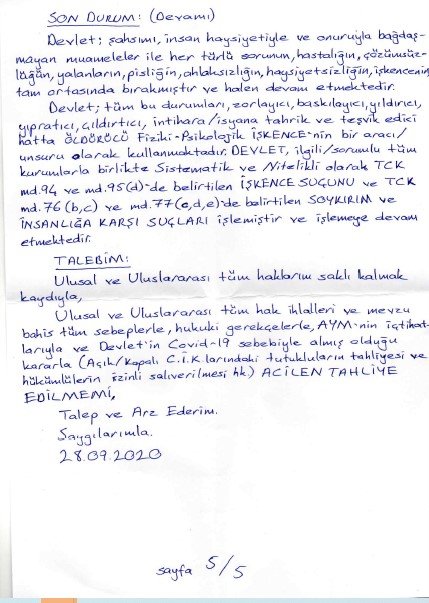Yasin Solmaz, a former Turkish Air Force officer, said in a letter to his lawyer that he and 43 other inmates who contracted COVID-19 had worried that they were the subjects of a medical trial after they were given tablets without any packaging, brand name or indication of what medication it was.
In his letter, which was published by the Bold Medya news website, Solmaz detailed the inhumane and unsanitary conditions in which they were forced to live in an overcrowded prison ward. Thirty-five to 45 people are held in a ward designed for seven people. Due to overcrowding some need to sleep on the floor. Seven people have to sleep together in a 10-square-meter room, he said, and there are always lines to use the two bathrooms, including at night.
Due to the ailing infrastructure and overcrowding, it is not possible for them to keep the kitchen and bathroom in a sanitary condition. According to Solmaz they are not given enough food and the continuing noise due to the size of the crowd undermines their psychological well-being.
Solmaz said, with the beginning of the COVID-19 pandemic, their life in prison became even more difficult. Restrictions were imposed on visits, sports activities and even getting books and other publications. He contracted COVID-19 together with the 43 inmates he was held with. They were given 12 tablets of medicine each, without any doctor’s approval.
The Turkish parliament passed an early parole law on April 14 aimed at reducing the inmate population of the country’s overcrowded prisons due to the coronavirus pandemic. The legislation, which excludes political prisoners such as politicians, journalists, lawyers, academics and human rights defenders convicted under the country’s controversial counterterrorism laws, prompted calls from the UN and the EU for the non-discriminatory reduction of prison populations.
Amnesty International and 26 other rights groups and civil society organizations from Turkey and around the world released a joint statement in March calling for the release of Turkey’s political prisoners, particularly those with a high risk of complications due to COVID-19.
Since April four seriously ill prisoners over the age of 70 have died in penal institutions; five inmates suffering from cancer died shortly after they were released; and 16 died of chronic illnesses while imprisoned.
Solmaz was dismissed from the air force and later sentenced to life imprisonment on coup charges in August 2018. Turkey experienced a controversial military coup attempt on the night of July 15, 2016 which, according to many, was a false flag aimed at entrenching the authoritarian rule of President Recep Tayyip Erdoğan by rooting out dissidents and eliminating powerful actors such as the military in his desire for absolute power.
The abortive putsch killed 251 people and wounded more than a thousand others. The next morning, after announcing the coup had been suppressed, the Turkish government immediately started a wide-ranging purge of military officers, judges, police officers, teachers and other government officials that ultimately led to the dismissal of more than 130,000 public servants and 20,571 members of the armed forces from their jobs for alleged membership in or relationships with “terrorist organizations.”
Legal professionals have criticized the use of mass trials against thousands accused of even vague involvement in the coup, including convictions handed down to army cadets and others who were ordered out onto the streets that night with little knowledge of what was going on.
The courts have now concluded almost all of the 289 trials related to the coup attempt and have convicted more than 4,000 people.


















